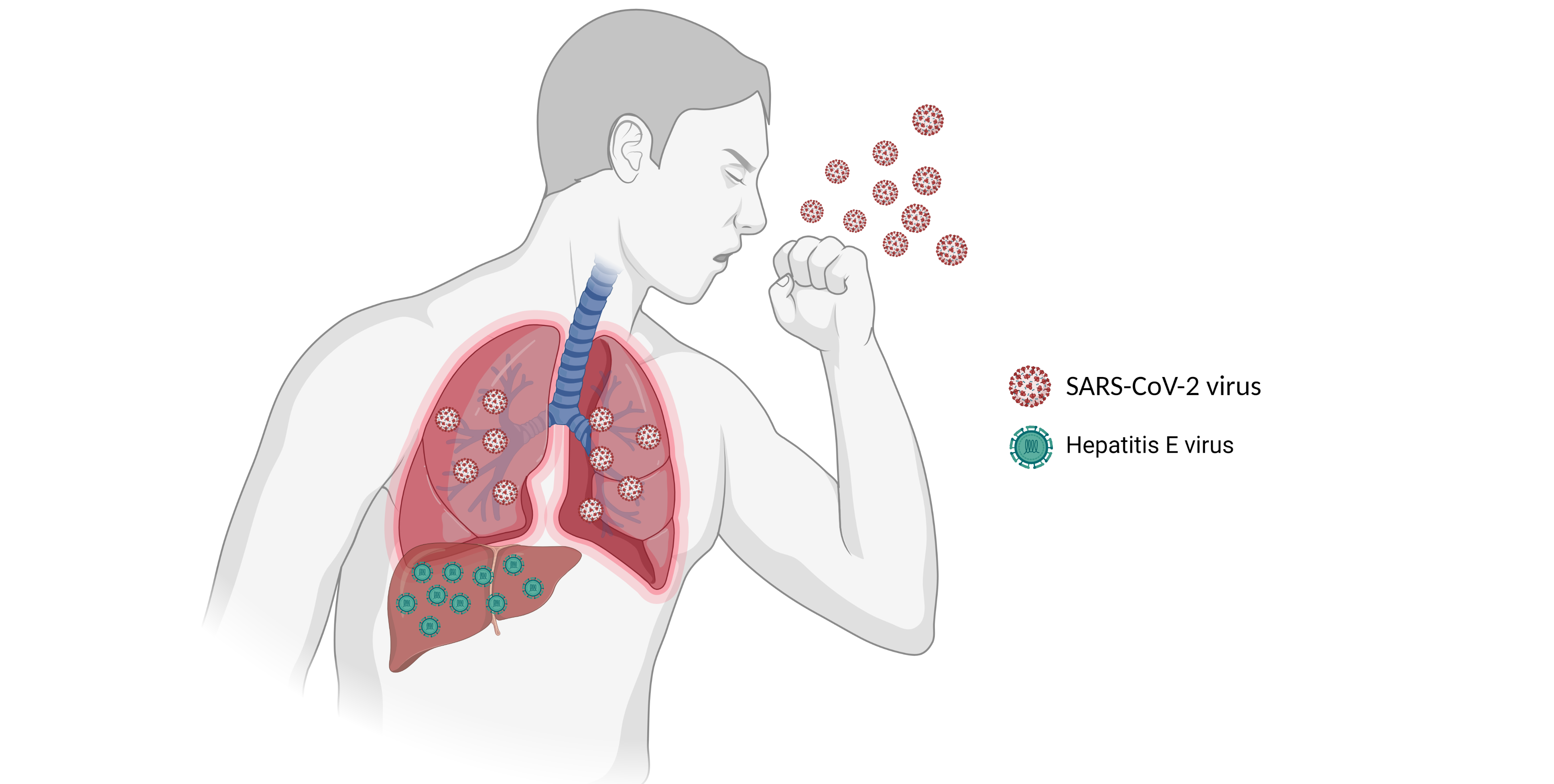The COVID-19 pandemic caused by SARs-CoV-2 infection has placed unprecedented demands on all aspects of healthcare. Although HEV transmission within the healthcare setting is extremely rare, clinical researchers from the United Kingdom has recently described two cases of nosocomial transmission of HEV in the intensive care unit (ICU) setting of COVID-19 patients.
Patient one admitted to ICU for COVID-19 was diagnosed of HEV infection. This patient eventually resolved his acute HEV infection. The second patient hospitalized for COVID-19 had been viraemic for at least 3 months, indicating a chronic HEV infection. This patient was treated with oral ribavirin and his serum HEV RNA level began falling once treatment was initiated. Despite a sharp decline in his serum HEV RNA levels following the initiation of ribavirin, HEV RNA was positive at the end of the initial 12 week course of ribavirin. Ribavirin therapy was therefore extended for a further 12 weeks and the outcome of this extended treatment course is currently awaited.
Further investigation suggests nosocomial transmission of genotype 3 HEV between these two patients in the ICU. The pressures of the COVID-19 pandemic on ICU bed necessitate the reinforcement of control measures such as strict handwashing with soap and water to prevent nosocomial transmission of various pathogens. Furthermore, the lymphopenia associated with COVID-19 and the immunosuppressive treatment may be contribute to the development of chronic HEV infection in one of the patients, although further research is required for understanding the underlying pathophysiology.
Read the full story https://www.sciencedirect.com/science/article/pii/S1386653222000191?via%3Dihub
The featured image was drawn using BioRender.

